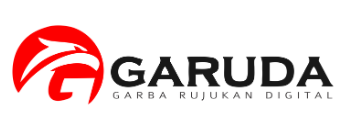The Effect of eWOM as Mediation of Website Quality and Trust
DOI:
https://doi.org/10.24002/kinerja.v22i2.1810Abstract
The purpose of this paper is to examine consumer attitudes toward online shopping in Marketplace, Shoppee. The paper used three variables which includes trust, perceived website quality, and electronic word of mouth (eWOM) along with their relationships in order to examine the effects of eWOM as mediator toward website quality and trust relationship. An offline survey was employed targeting online shoppers of Shoppee, one of reputable marketplace in Indonesia. A sample of 200 students in Universitas Atma Jaya Yogyakarta as online shoppers was involved in the online survey. Regression and Path analysis was used to test the hypothesized relationships of the research model. The empirical findings of this research shows that website quality and eWOM are predictor of consumer trust. Hence, EWOM also has mediation effect. The implication of this research is to support the importance of eWOM as key drivers to build trust among customers in online shopping. It also underlines the importance of website quality as important factors in online shopping.
Keywords: eWOM, Website quality, Trust, Online Shopping
References
Agag, G. M., & El-Masry, A. A. 2016. Why Do Consumers Trust Online Travel Websites? Drivers and Outcomes of Consumer Trust toward Online Travel Websites. Journal of Travel Research, pp 1-23.
Al-Debei, M. M., Akroush, M. N., & Ashouri, M. I. 2015. Consumer Attitudes towards Online Shopping, The effect of Trust, Perceived Benefits, and Perceived Web Quality. Internet Research, Vol 25, No 5, pp 707-733.
Al-Qeisi, K., Dennis, C., Jayawardhena, C., & Alamanos, E. 2014. Website Design Quality and Usage Behavior: an Application of the UTAUT. Journal of Business Research, Vol. 67(11), pp: 2282-2290.
Baron, R. M., & Kenny, D. M. 1986. Moderator-Mediator Variables Distinction in Social Psychological Research: Conceptual, Strategic, and Statistical Considerations. Journal of Personality and Social Psychology, Vol 51, (6) pp 1173-1182.
Das, K., Gryseels, M., Sudhir, P., & Tan, K. T. 2016. Unlocking Indonesia's Digital Opportunity. Jakarta: McKinsey Indonesia.
Fan, Y.-W., & Miao, Y.F. 2012. Effect of Electronic Word-Of-Mouth on Consumer Purchase Intention: The Perspective of Gender Differences. International Journal of Electronic Business Management, Vol. 10, No. 3, pp. 175-181.
Fang, Y., Qureshi, I., Sun, H., McCole, P., Ramsey, E., & Lim, K. H. 2014. Trust Satisfaction, and Online Repurchase Intention: The Moderating Role of Perceived Effectiveness of E-Commerce Institutional Mechanisms. MIS Quarterly, Vol. 38 No 2, pp.407-427.
Gefen, D., Karahanna, E., & Straub, D. W. 2003. Trust and TAM in Online Shopping: An Integrated Model. MIS Quarterly, Vol. 27, No. 1, pp. 51-90.
Hair, J. F., Black, J. W., Babin, B. J., & Andersen, R. E. 2014. Multivariate Data Analysis 7th edition. England: Pearson.
Huete-Alcocer, N. (2017, July 25). A Literature Review of Word of Mouth and Electronic Word of Mouth: Implication of Consumer Behavior. Mini Review Frontiers in Psychology, Vol. 8, pp. 1256-1260.
Kahneman, D., & Tversky, A. 1979. Prospect Theory: An Analysis of Decision under Risk. Econometrica, Vol 47, No 2, pp. 263-291.
Kim, H.-W., Xu, Y., & Gupta, S. 2012. Which is more important in Internet shopping, perceived price or trust? Electronic Commerce Research and Applications. pp. 241–252.
Ladhari, R., & Michaud, M. 2015. eWOM Effects on Hotel Booking Intentions, Attitudes, Trust, and Website Perceptions. International Journal of Hospitality Management, No 46, pp. 26-45.
Li, H., Jiang, J., & WuSchool, M. 2014. The effects of trust assurances on consumers’ initial online trust: A two-stage decision-making process perspective. International Journal of Information Management, Vol. No 34, pp. 395–405.
N. F., & Ragowsky, A. 2008. Establishing Trust in Electronic Commerce Through Online Word of Mouth: An Examination Across Genders. Journal of Management Information Systems, Vol. 24, No. 4, pp. 101–121.
Zhao, X., JR, J. G., & Chen, Q. 2010. Reconsidering Baron and Kenny: Myths and Truths about Mediation Analysis. Journal of Consumer Research, Vol 37, pp.197-206.
INTERNET SOURCES
Number of internet users in Indonesia from 2015 to 2022 (in millions). 2018. accessed 13 July 2018 from www.statista.com https://www.statista.com/statistics/254456/number-of-internet-users-in-indonesia/
Priambada, A. (2015, 06 22). Daily social. Accessed 16 August 2018, from www.dailysocial.id: https://dailysocial.id/post/shopee
Sholihin, B. (2018, 01 31). Tempo. From www.indonesiana.tempo.co: https://indonesiana.tempo.co/read/122160/2018/01/31/burhan_sholihin.1














